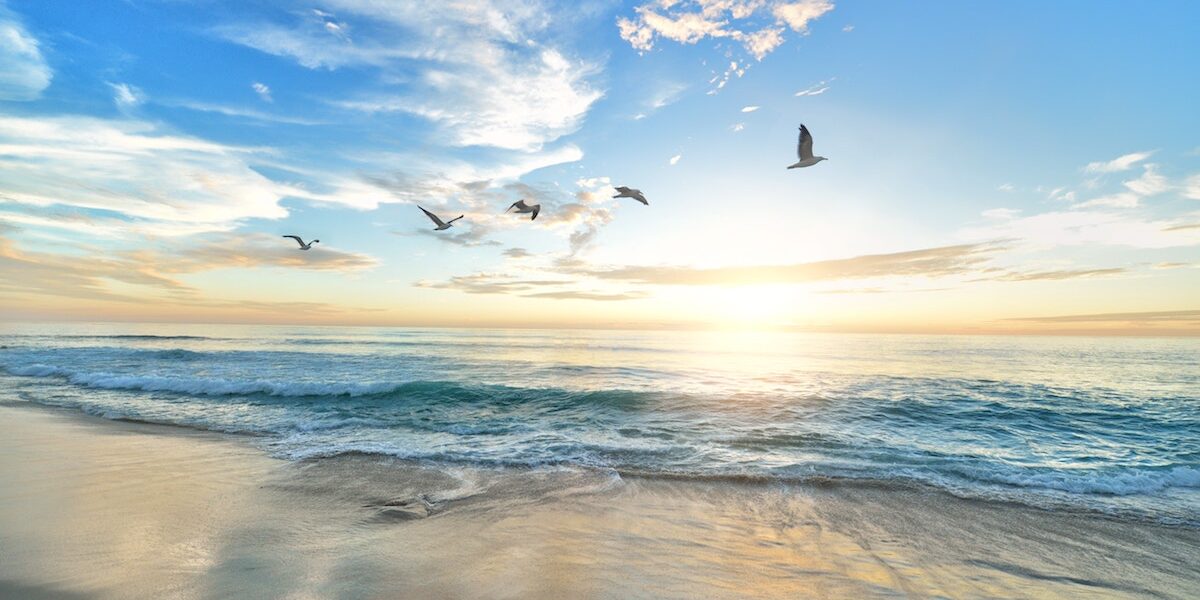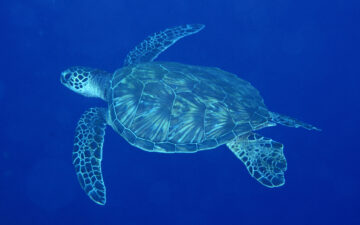by Mark J. Spalding, President
The Ocean Foundation is the first “community foundation” for the oceans, with all the tools of a community foundation and a unique focus on marine conservation. As such, The Ocean Foundation addresses two major obstacles to more effective marine conservation: a shortage of money and the lack of a venue in which to readily connect marine conservation experts to donors who wish to invest. Our mission is to: support, strengthen, and promote those organizations dedicated to reversing the trend of destruction of ocean environments around the world.
How We Pick Our Investments
We begin by searching the globe for compelling projects. The factors which may make a project compelling include: strong science, strong legal basis, strong socio-economic argument, charismatic fauna or flora, a clear threat, clear benefits, and a strong/logical project strategy. Then, much like any investment advisor, we use a 14-point due diligence checklist, which looks at the project’s management, financing, legal filings and other reports. And, whenever possible we also conduct in person site interviews with the key staff.
Obviously there are no more certainties in philanthropic investing, than in financial investing. Therefore, The Ocean Foundation Research Newsletter presents both facts and investment opinions. But, as a result of nearly 12 years of experience in philanthropic investing as well as our due diligence on the selected featured projects, we are comfortable with making recommendations for projects that make a difference to ocean conservation.
4th Quarter Investments by The Ocean Foundation
During the 4th Quarter of 2004, The Ocean Foundation highlighted the following communications projects, and raised funds to support them:
- The Brookings Institution – for a roundtable discussion on “The Future of Oceans Policy” featuring Admiral Watkins of the US Commission on Ocean Policy (USCOP), Leon Panetta of the Pew Oceans Commission, and Congressional leaders. This roundtable set the tone and keeps attention on the USCOP before the Bush Administration responds to its September 2004 report. It was attended by more than 200 people from House and Senate staff, as well as media and academic representatives.
- Caribbean Conservation Corporation – to co-sponsor an Atlantic Leatherback Strategy Retreat of 23 of the top researchers on this endangered species in preparation for the 2004 International Sea Turtle Symposium. The retreat will allow CCC to facilitate an international collaboration in developing long-term conservation strategies for these magnificent highly migratory animals.
- Center for Russian Nature Conservation – to co-sponsor a special Bering Sea Marine Protected Areas issue of the Russian Conservation News widely regarded as one of the best publications out there. This issue will ensure that attention is paid to one of the most neglected coasts in the world.
New Investment Opportunities
TOF closely monitors the forefront of ocean conservation work, searching for breakthrough solutions in need of funding and support, and communicating the most important new information to you. This quarter we are featuring:
- Center for Health and the Global Environment at Harvard Medical School, for a human health and oceans communication project
- Ocean Alliance, for a high tech project regarding oil industry noise pollution off West Africa
- Surfrider Foundation, for a Puerto Rico coral reef protection effort
Who: Center for Health and the Global Environment at Harvard Medical School
Where: South Carolina Aquarium and the Birch Aquarium at Scripps have agreed to host the exhibit. Other museums and aquariums will be offered the opportunity to host the exhibit.
What: For a first ever traveling exhibit about the human health connection to the oceans. The exhibit argues that healthy marine ecosystems are essential in maintaining human health and focuses on three aspects: potential medical applications, seafood, and the ocean’s role in providing a livable atmosphere. It highlights global warming and other issues that threaten these needs, and culminates in a positive, solution-oriented presentation that convinces visitors to conserve the ocean environment in order to safeguard their own health.
Why: Funding a traveling exhibit produced by a respected authority can be a high leverage opportunity to reach a very broad audience with a critical message. The critical message in this case is making the link between oceans and health, one of the key rationales for supporting ocean conservation, but one which research has shown the public has not yet made.
How: The Ocean Foundation’s Marine Education Field-of-Interest Fund, which focuses on the support and distribution of promising new curricula and materials that encompass social as well as economic aspects of marine conservation. It also supports partnerships that are advancing the field of marine education as a whole.
Who: Ocean Alliance
Where: Off Mauritania and the West Coast of Africa during the spring of 2005
What: For an innovative acoustic survey as part of the Ocean Alliance’s Voyage of the Odyssey. This is a collaborative project of Scripps Institution of Oceanography and the Ocean Alliance. This program also has a strong educational component in partnership with PBS. The study will focus on the impacts of the noise from seismic oil exploration and fisheries on cetaceans. The project will use cutting edge technology: Autonomous Acoustic Recording Packages. These devices are dropped onto the ocean floor and provide continuous recording at 1000 samples per second for months. Data from the AARP’s will be compared with acoustic transects run from the Odyssey using a towed acoustic array with a broad frequency range. The project will be added to the already ongoing Voyage of the Odyssey that will produce a comprehensive assessment of the abundance and distribution of marine mammals within the survey area, including looking at their toxicological and genetic status.
Why: Anthropogenic sound is created in the ocean both purposefully and unintentionally. The result is noise pollution that is high-intensity and acute, as well as lower-level and chronic. There is sufficient evidence to conclude that high-intensity sounds are harmful and, on occasion, fatal to marine mammals. Finally, this project is set in a remote ocean region where little or no studies of this type have ever taken place.
How: The Ocean Foundation’s Marine Mammals Field-of-Interest Fund, which focuses on the most important immediate threats to marine mammals.
Who: Surfrider Foundation
Where: Rincón, Puerto Rico
What: To support the “Puerto Rico Coastal Protection Campaign.” The goal of this community-led campaign is the permanent protection against massive pending development for the regional coastal area by establishing a marine reserve. Part of the goal was reached this year when Governor Sila M. Calderón Serra signed a bill to create the “Reserva Marina Tres Palmas de Rincón.”
Why: The northwest corner of Puerto Rico is the gem of the Caribbean surfing world. It boasts numerous world-class waves, including Tres Palmas – the temple of big wave surfing in the Caribbean, nestled in a cozy village called Rincón. Rincón is also home to pristine coral reefs and sandy beaches. Humpback whales come to breed offshore and sea turtles nest on the beaches. The Ocean Foundation was a proud supporter of seeking the reserve designation and is now raising funds for this successful project to continue and ensure this is a real park with financial support, a management plan and long-term infrastructure for enforcement and monitoring. Support for Surfrider in Puerto Rico will also go toward efforts to protect the adjacent land area, and maintain community involvement in the campaign.
How: The Ocean Foundation’s Coral Reef Field-of-Interest Fund; which supports local projects that promote sustainable management of coral reefs and the species that depend on them, while seeking out opportunities to improve management for coral reefs on a much bigger scale.
TOF News
- TOF has signed an agreement to be the fiscal agent for Oceans 360, a worldwide photo-documenting of humanity’s multifaceted connection with the oceans.
- TOF is partnering in a report to NOAA on the state of public knowledge on oceans, which also will make recommendations on new strategies it might consider for its educational efforts.
- TOF recently became a member of the Association of Small Foundations, a national organization for some 2900 foundations with few or no staff, representing nearly $55 billion in assets.
- This quarter has also seen the fledging of the Marine Photobank, which had been incubated by TOF, to become a stand-alone project at SeaWeb. SeaWeb is a pre-eminent oceans communication non-profit, and we are certain Marine Photobank is a great fit within its portfolio.
A “Market Trend” in the US
In 2005, the Bush Administration and the 109th Congress will have the opportunity to respond to some 200 recommendations from the U.S. Commission on Ocean Policy (USCOP), which in a report released in September found federal oceans oversight is too fractured to protect marine ecosystems being decimated by pollution, overfishing and other threats. Thus, TOF has initiated a review of pending federal ocean legislation underway – both to prepare for the reauthorization of the Magnuson Stevens Fishery Conservation and Management Act (MSA) and any follow on to the USCOP report. Unfortunately, it appears that Senator Stevens (R-AK) intends to narrow the definition of Essential Fish Habitat required to be protected under the law, and to limit judicial review of fishery council decisions, including adding NEPA sufficiency language to the MSA.
Some Final Words
The Ocean Foundation is increasing the capacity of the ocean conservation field and bridging the gap between this time of growing awareness of the crisis in our oceans and true, implemented conservation of our oceans, including sustainable management and governance structures.
By 2008, TOF will have created an entirely new form of philanthropy (a cause-related community foundation), established the first international foundation focused solely on ocean conservation, and become the third largest private ocean conservation funder in the world. Any one of these achievements would justify the initial time and money to make TOF successful – all three make it a unique and compelling investment on behalf of the planet’s oceans and the billions of people who depend upon them for vital life support.





